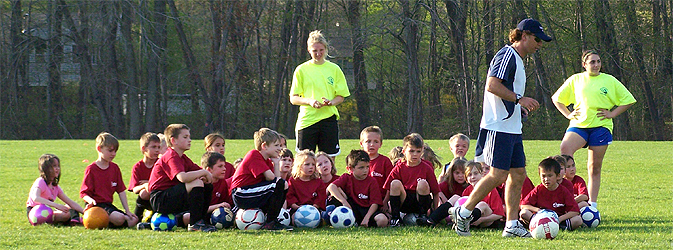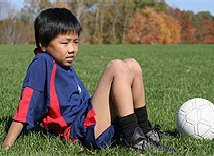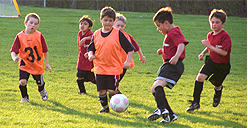How Young Players Learn

To coach effectively you must possess knowledge of how players learn. You should frequently remind yourself of what it is like to live in a child’s world. Players are unique psychologically, physically and emotionally and
it is important to understand and appreciate the differences between players at various age levels. This section will provide you with pointers on how players learn and some of the character traits. |
|||
| Players must have an interest | |||
|
|||
| Players should be enthusiastic | |||
| Enthusiastic players want to play longer, practice harder and have an open mind when it comes to learning new ideas. | |||
| Players should see good examples | |||
| Encourage your team to watch professionals play. This is the highest level for your players to aspire too. Players need role models to emulate. Players will learn by watching and copying the skills and habits of their stars. Players also need good examples in practice. The coach must set high, and attainable standards for the team. | |||
| Players learn through habit-forming practices | |||
|
|||
| Players learn by goal setting and feedback | |||
| From the first day of practice, through the entire season you should set performance goals for your players and the team as a whole. These goals should be realistic and attainable. Always calculate on the side of success. When these objectives are achieved, then reestablish new goals. Provide feedback to players in a positive manner and explain how they can improve upon their mistakes. |
|


